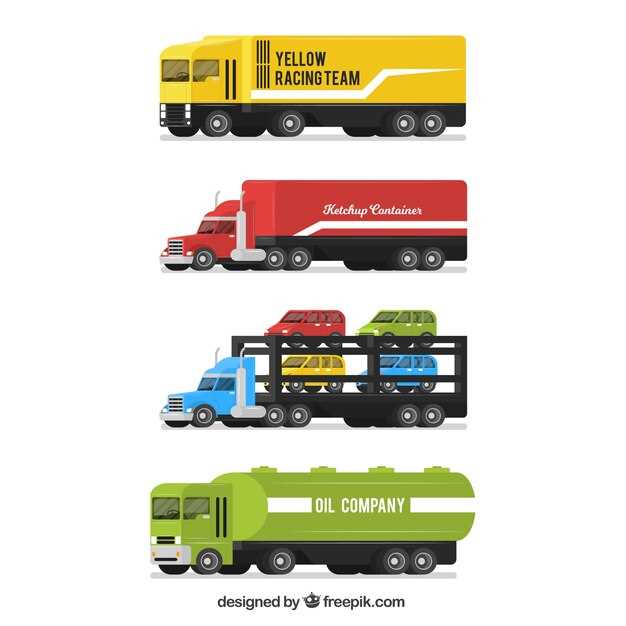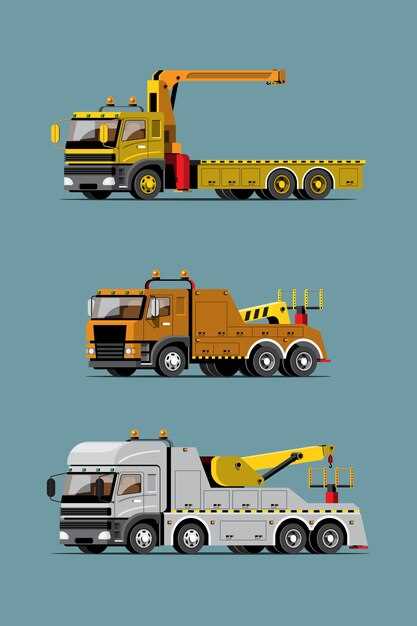
When it comes to transporting heavy loads, the choice of trailer can significantly impact efficiency and safety. Flatbed trailers are particularly favored in heavy-duty applications due to their versatility and ease of loading. Whether you are in construction, agriculture, or any industry that requires the transportation of bulky equipment, selecting the right flatbed trailer is crucial.
This article aims to guide you through some of the best flatbed trailers available on the market today, taking into consideration factors such as payload capacity, durability, and ease of use. Understanding the specific needs of your work truck will help you make an informed decision that enhances your operational productivity.
As we explore the top options, we will highlight each trailer’s unique features, making it easier for you to evaluate which model aligns best with your work requirements. Investing in the right flatbed trailer can ensure that your heavy-duty tasks are accomplished efficiently, ultimately contributing to the success of your business. Let’s dive into the best flatbed trailers designed for heavy-duty work trucks.
Choosing the Right Size and Weight Capacity for Your Needs
When selecting a flatbed trailer for heavy-duty work, understanding the appropriate size and weight capacity is crucial. A well-chosen trailer can significantly enhance efficiency, safety, and productivity. Here are key considerations to guide your decision:
- Load Dimensions: Determine the dimensions of the loads you plan to transport. Measure the length, width, and height to ensure that the trailer can accommodate these specifications.
- Weight Requirements: Assess the total weight of your cargo, including any additional equipment. Be mindful of the trailer’s maximum weight capacity and the weight distribution for safe transportation.
- Trailer Length: Choose a trailer length that aligns with your typical loads. Common sizes include 20, 24, and 30 feet. Longer trailers allow for larger loads but may be less maneuverable.
- Height Clearance: Ensure adequate height clearance for your cargo, especially for taller loads. Consider potential height restrictions on roads, bridges, and loading areas.
- Axle Configuration: Select an appropriate axle configuration based on weight distribution. More axles can support heavier loads and improve handling and stability.
- Legal Restrictions: Check local regulations regarding trailer size and weight limits. Compliance is vital to avoid fines and ensure safety on the road.
In summary, considering the load dimensions, weight requirements, trailer length, height clearance, axle configuration, and legal restrictions will help you select the right trailer for your heavy-duty needs. Make informed choices to enhance your operational effectiveness.
Features to Look for in Durable Flatbed Trailers

When selecting a flatbed trailer for heavy-duty work, several key features are essential for ensuring durability and performance. First and foremost, the construction material plays a crucial role. Look for trailers made from high-strength steel or aluminum, as these materials offer superior resistance to wear and tear while maintaining structural integrity under heavy loads.
Another important feature is the trailer’s weight capacity. Ensure that the flatbed trailer can handle the maximum load you anticipate transporting. Check the Gross Vehicle Weight Rating (GVWR) and make sure it exceeds your hauling requirements to avoid overloading issues.
Additionally, consider the trailer’s frame design. A robust, reinforced frame can significantly enhance stability and durability during transport. Cross members and tongue construction should be adequately designed to withstand the stresses of heavy loads, providing peace of mind on the road.
Wheel configuration is also vital for stability and ease of maneuvering. A tandem or tri-axle setup allows for better weight distribution, enhancing towing performance and reducing wear on tires and suspension systems. Furthermore, ensure that the trailer is equipped with high-quality suspension systems to absorb shocks, which minimizes the impact on both the trailer and the truck.
Storage options can enhance the trailer’s functionality. Features such as built-in tie-down points, removable side rails, or stake pockets provide flexibility for securing various types of cargo. Choose a flatbed trailer with non-slip surfaces to ensure that loads remain secure during transportation.
Lastly, check the trailer’s maintenance requirements. Models that come with sealed bearings, rust-resistant coatings, and easy-access features for routine checks will save time and reduce long-term maintenance costs. Investing in a flatbed trailer with these features ensures longevity and reliability in demanding work environments.
Comparing Costs and Value Across Different Brands

When considering flatbed trailers for heavy-duty work trucks, analyzing costs and value across various brands is essential for making an informed purchase. Different brands offer a range of features, capacities, and materials, all of which can significantly influence pricing.
Brand A is known for its robust construction and high durability, boasting a longer lifespan. However, this premium quality comes at a higher price point. Customers investing in Brand A may benefit from reduced maintenance costs and increased resale value over time, making it a cost-effective choice in the long run despite the initial investment.
In contrast, Brand B offers competitive pricing, targeting entry-level buyers and small business owners. While the upfront costs are lower, the materials used may not withstand extreme conditions as effectively. Users should weigh the potential for increased repair expenditures against the initial savings when selecting Brand B.
Brand C stands out with a mid-range pricing strategy, providing a balance between quality and cost. It incorporates advanced design elements aimed at improving payload capacity while maintaining structural integrity. Customers appreciate this brand for its value, as it offers desirable features without a prohibitive price tag.
Another factor to consider is the availability of warranty and customer service. Brands that provide comprehensive warranties often justify higher costs, as they assure buyers of quality and support, which can translate to savings in the event of repairs.
Ultimately, assessing the total cost of ownership–including initial price, maintenance, durability, and resale value–is vital when comparing flatbed trailer brands. By aligning these factors with specific work requirements, buyers can find the optimal balance between cost and value for their heavy-duty needs.

